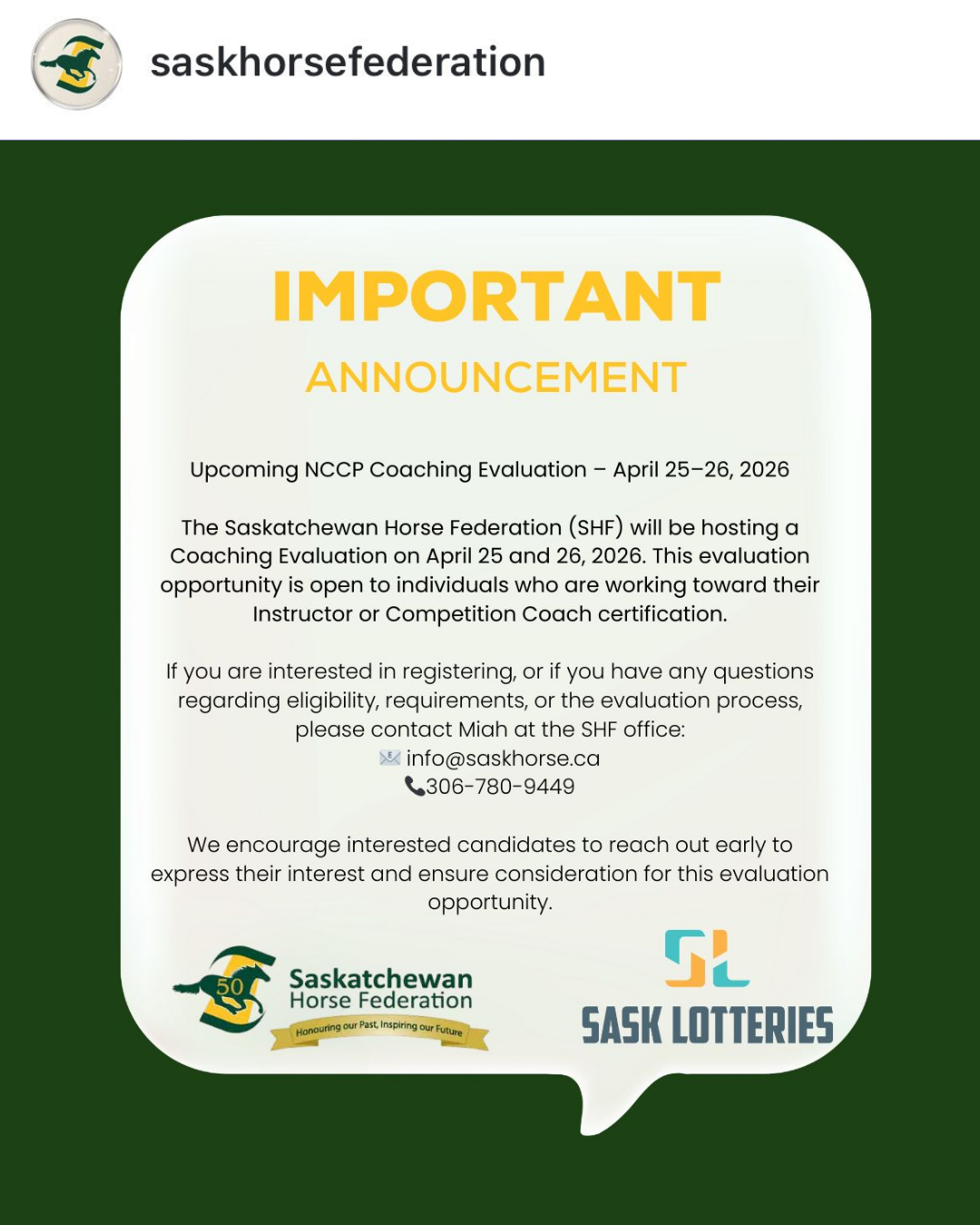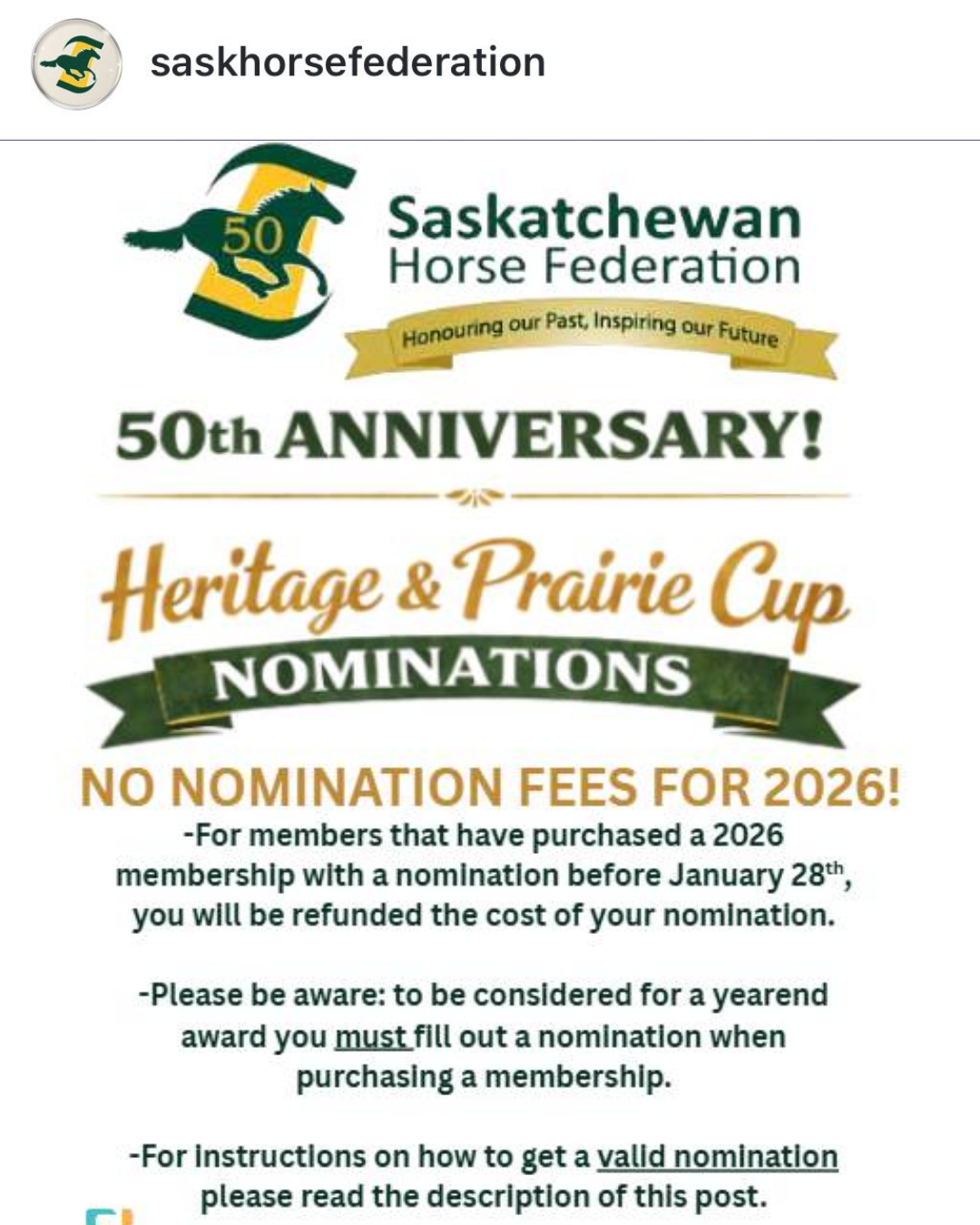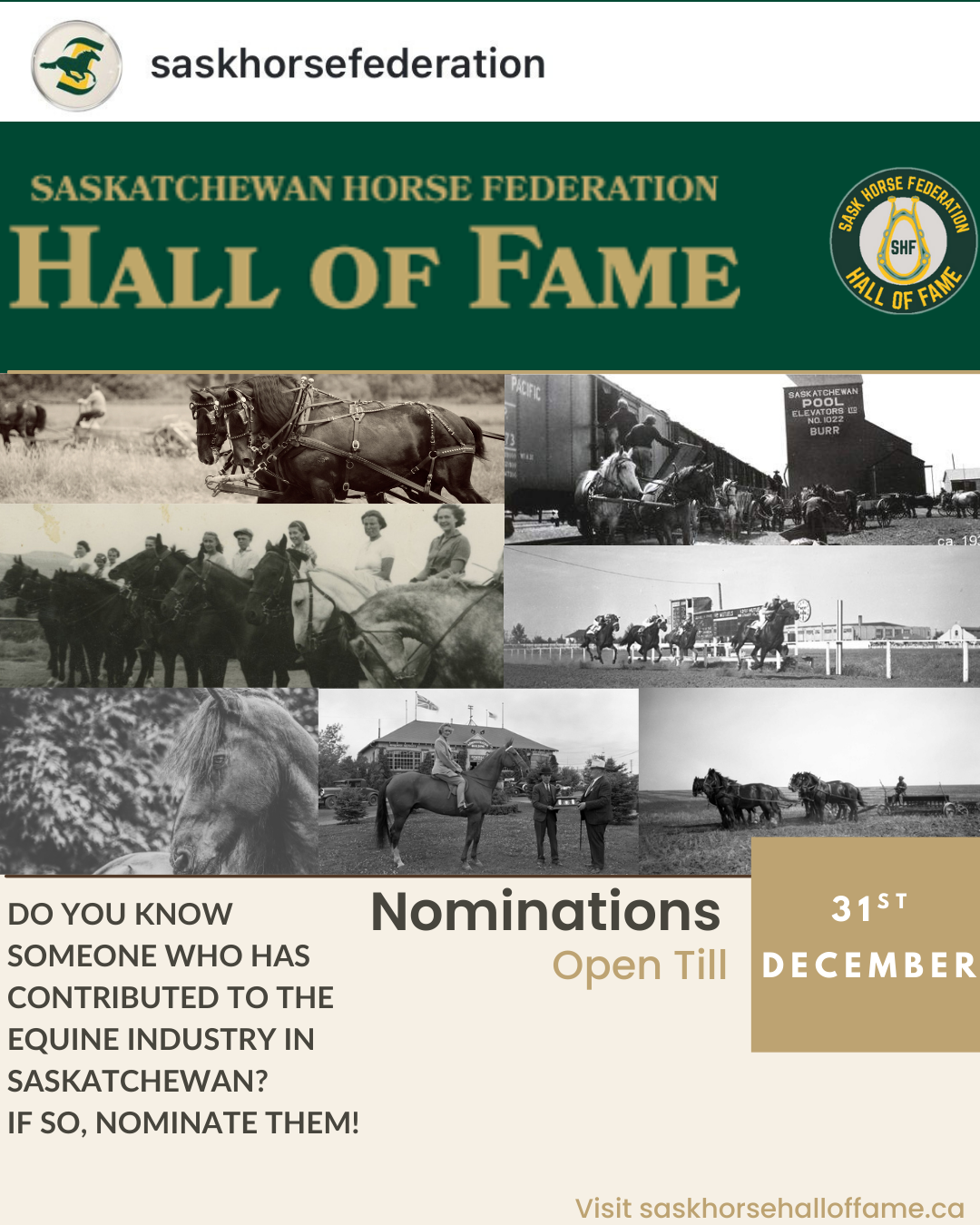
Equine Code of Practice (PDF version)
Feeding Horses (PDF)
The Codes of Practice are national developed guidelines for the care and handling of farm animals. They serve as our national understanding of animal care requirements and recommended practices. Codes promote sound management and welfare practices for housing, care, transportation and other animal husbandry practices.
Codes of Practice have been developed for virtually all farmed animal species in Canada. NFACC's website provides access to all currently available Codes (www.nfacc.ca).
The Codes of Practice are the result of a rigorous Code development process, taking into account the best science available for each species, compiled through an independent peer-reviewed process, along with stakeholder input. The Code development process also takes into account the practical requirements for each species necessary to promote consistent application across Canada and ensure uptake by stakeholders resulting in beneficial animal outcomes. Given their broad use by numerous parties in Canada today, it is important for all to understand how they are intended to be interpreted.
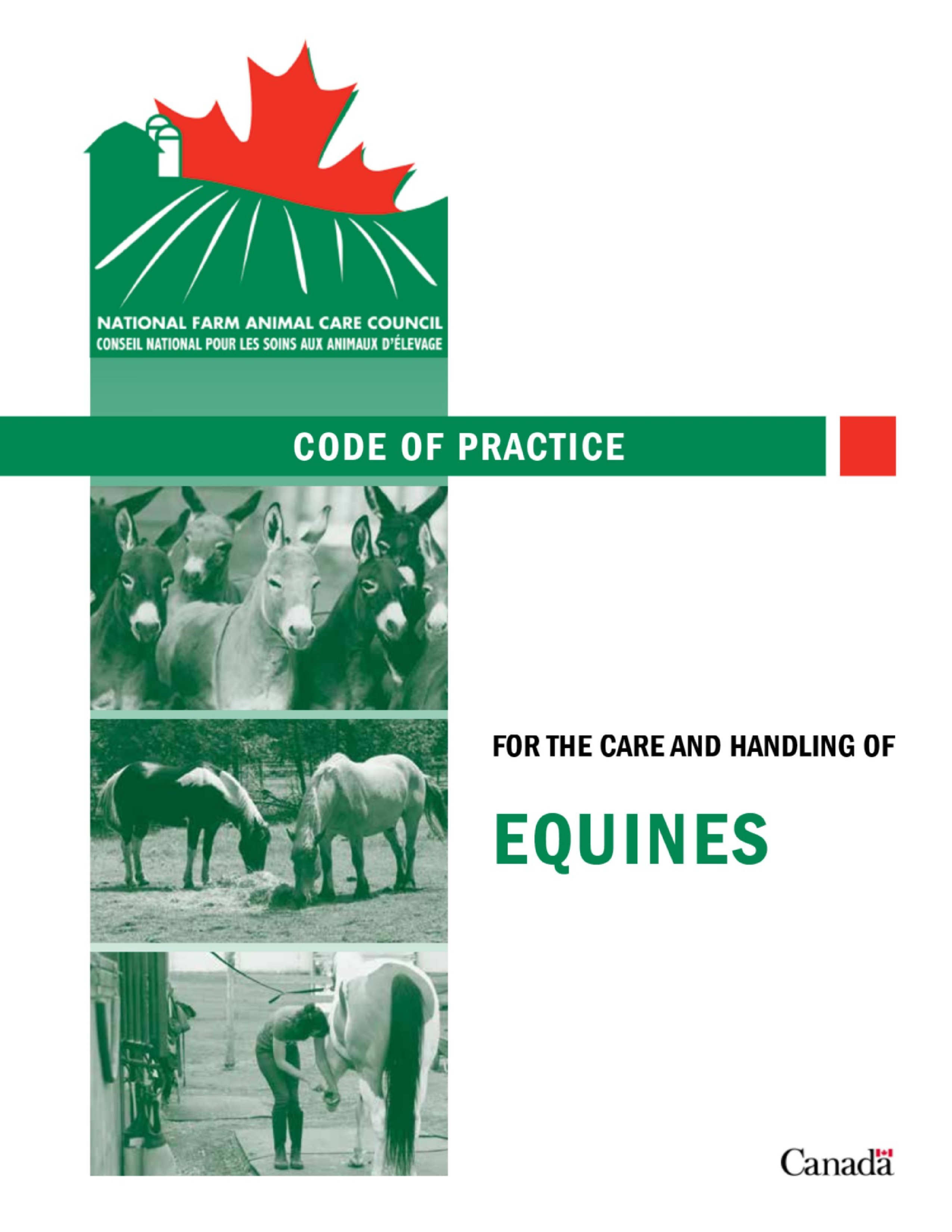 Requirements - These refer to either a regulatory requirement, or an industry imposed expectation outlining acceptable and unacceptable practices and are fundamental obligations relating to the care of animals. Requirements represent a consensus position that these measures, at minimum, are to be implemented by all persons responsible for farm animal care. When included as part of an assessment program, those who fail to implement Requirements may be compelled by industry associations to undertake corrective measures, or risk a loss of market options. Requirements also may be enforceable under federal and provincial regulation.
Requirements - These refer to either a regulatory requirement, or an industry imposed expectation outlining acceptable and unacceptable practices and are fundamental obligations relating to the care of animals. Requirements represent a consensus position that these measures, at minimum, are to be implemented by all persons responsible for farm animal care. When included as part of an assessment program, those who fail to implement Requirements may be compelled by industry associations to undertake corrective measures, or risk a loss of market options. Requirements also may be enforceable under federal and provincial regulation.
Recommended Practices - Code Recommended Practices may complement a Code's Requirements, promote producer education and can encourage adoption of practices for continuous improvement in animal welfare outcomes. Recommended Practices are those which are generally expected to enhance animal welfare outcomes, but failure to implement them does not imply that acceptable standards of animal care are not met.
The Five Freedoms
An animal's welfare should be considered in terms of the Five Freedoms (below). These freedoms form a framework for analysis of welfare within any system and those responsible for equines are encouraged to consider the Five Freedoms.
- Freedom from Hunger and Thirst - by ready access to fresh water and a diet to maintain full health and vigour.
- Freedom from Discomfort - by providing an appropriate environment including shelter and a comfortable resting area.
- Freedom from Pain, Injury and Disease - by prevention or rapid diagnosis and treatment.
- Freedom to Express Normal Behaviour - by providing sufficient space, proper facilities and company of the animal's own kind.
- Freedom from Fear and Distress - by ensuring conditions and treatment which avoid mental suffering.
The Five 'R' Program
The Five 'R' Program has been developed by Equestrian Canada to implement its Equine Life cycle Management Policy. The program incorporates the descriptive three Rs; Reduce, Retain, Retrain and two additional equine Rs, Retire and Respect.

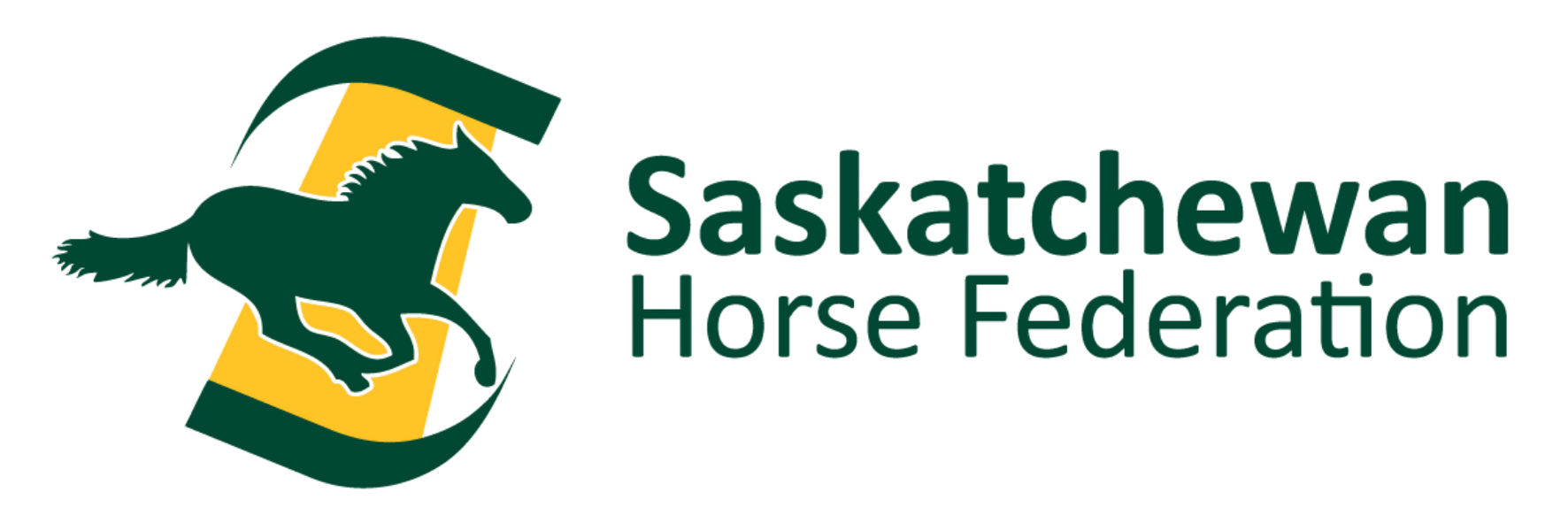

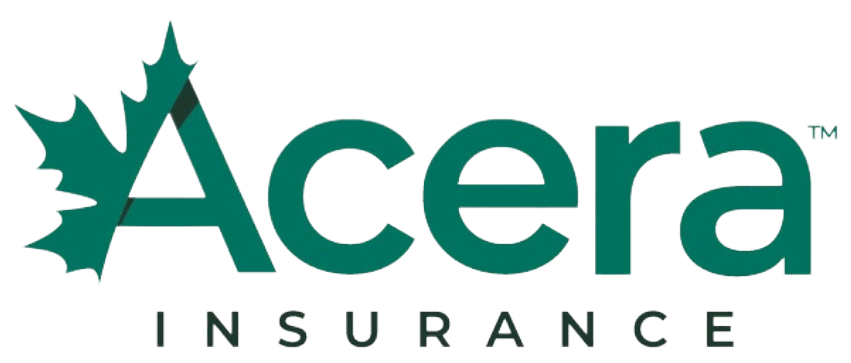
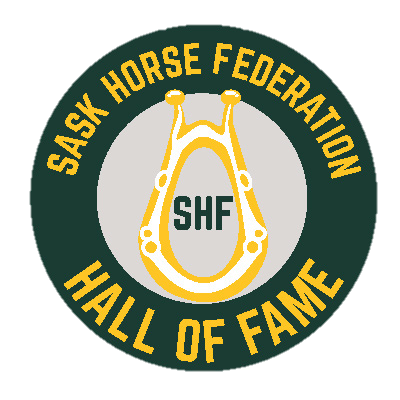
.png)

